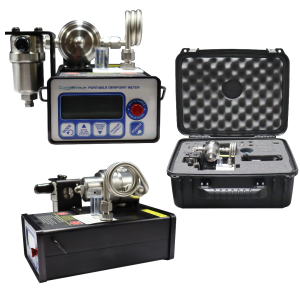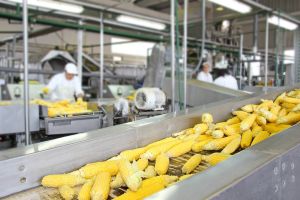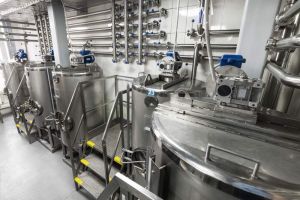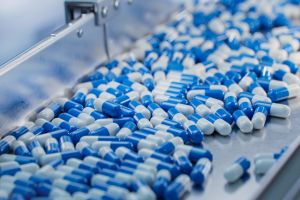Dew Point Meters, Transmitters & Sensors
With Aluminum Oxide Sensor
FAST & DRIFT-FREE MOISTURE MEASUREMENT
BUILT FOR EASY of USE AND RELIABILITY
Our COSA XENTAUR™ dew point meters and transmitters are easy-to-use for quality control, production and in-process control of many industries, such as pharmaceutical, chemical, plastics, and the food and beverage industries. With user-friendly interface, our multi-functional dew point meters are fast and accurate with low maintenance.
- Fastest Aluminum Oxide Sensors using our patented HTF™ (hyper-thin film) technology
- Ideal for a wide range of analytical and process measurement applications
- Field-proven and cost-effective
Features
- High accuracy: Designed to provide accurate and precise measurements, even in harsh environments.
- Wide measuring range: Can measure dew points from as low as -148°F (-100°C) to as high as 68°F (20°C).
- Fast response time: Provide quick and real-time measurements, which is crucial for process control and optimization.
- Easy to use: These instruments are user-friendly and can be easily installed and calibrated.
- Robust and durable: Built to withstand extreme temperatures, pressures, and humidity levels, making them suitable for a wide range of industrial applications.
- Versatile: They can be used to measure the moisture content of various gases and liquids, including natural gas, compressed air, hydrogen, nitrogen, and more.

The below products have been discontinued. Please contact us if you have questions or need further information.
Model XDT-XPH Transmitter in Adalat Explosion Proof Enclosure and the Model ESS-SCVP Mission Critical Class 1 Div 1, This covers all Series XDT-XPH Transmitters. This does not affect the overall XDT transmitter line.
Main Part Numbers Affected:
- XPH.S1.M.3000: XPH 4-Hole Atex Enclosure with OEM,120, Sr, 420, Znr
- XPH.S1.M.3500: Oem, 120, Sr, 420, Znr
- XDT.S1.E.6200: Zener Kit for XPH
- XPH.37.M.0002: Ex Proof Encl W/ Cover – Zener
The cancellation of the product is due to a change in vender supplied Zener barrier required for Class 1 Div 1 ratings, reconfiguring of the XDT-XPH for the new Zener barrier will require complete recertification for the XDT-XPH. Process Insights will not be going forward with the recertification. We will be adding Class 1 Div 1 to the upgraded version of the XDT being developed for release in the next 1-2 years.
Service and support of the XDT-XPH will continue for the life of the Model XDT and as parts allow.
Sensor calibration and sensor replacement, Main board, Optical board, and most general parts will not be affected and are available as needed for service or field replacement. Please contact support.hou@process-Insights.com.
Replacement options HDT, and other versions of the XDT. Please contact your area sales representative or send email to sales.hou@process-insights.com.

The below products have been discontinued. Please contact us if you have questions or need further information.
LPDT.Obsolescence Notification Letter
- Model LPDT-65: Loop Powered Dewpoint Transmitter with XTR-65 Sensor
- Model LPDT-100: Loop Powered Dewpoint Transmitter with XTR-100 Sensor
- Model LPDT-100 P: Loop Powered Dewpoint Transmitter with XTR-100 Polished Sensor
The LPDT is to be replaced with our NEW Model LPDT2 which has more application options and lower cost options. The Model LPDT2 is currently available for purchase in all configurations and certifications as listed below.
General Purpose Models:
- LPDT2 -65 Non-Display
- LPDT2 – 65 Display
- LPDT2 – 100 Non-Display
Hazardous Area Certified Models:
- LPDT2 – 100 Display
- LPDT2 -65 Non-Display Certified
- LPDT2 – 65 Display Certified
- LPDT2 – 100 Non-Display Certified
- LPDT2 – 100 Display Certified
Hyper-Thin-Film Technology
For a complete range of analytical instrumentation, applications, systems, and service options, we will work to match your needs and budget and provide the optimal, and most stable process analysis solution for your application.
SALES | TRAINING INQUIRIES
AMERICAS: info@process-insights.com
EMEAI: info.emeai@process-insights.com
APAC: info.apac@process-insights.com
CHINA: info.cn@process-insights.com
SERVICE | TECHNICAL INQUIRIES
SOLUTIONS FLYERS
-

AGRICULTURE
-

CHEMICAL
-

ENERGY
-

FOOD & BEVERAGE
-

FLARE GAS
-

INDUSTRIAL GAS
-

LAB & RESEARCH
-

PHARMACEUTICALS & LIFE SCIENCE
-

REFINERY
-

SEMICONDUCTOR
-

SPECIALTY GAS
OUR DEW POINT MOISTURE SOLUTIONS BY INDUSTRY
WHY MEASURING MOISTURE MATTERS to your process control
Measuring moisture in a process is important for several reasons:
- Quality control: Moisture content can have a significant impact on the quality of a product. For example, if the moisture content of a food product is too high, it can lead to spoilage or mold growth. Similarly, if the moisture content of a pharmaceutical product is too low, it can affect the effectiveness of the medication.
- Process optimization: Moisture content can also affect the efficiency of a manufacturing process. For example, if the moisture content of a material is too high, it may take longer to dry or require more energy to achieve the desired moisture content. On the other hand, if the moisture content is too low, it may cause the material to become brittle or difficult to handle.
- Cost savings: Accurately measuring moisture content can help prevent over-drying or under-drying, which can result in wasted materials and energy costs.
- Regulatory compliance: In some industries, such as food and pharmaceuticals, there are strict regulations regarding moisture content. Measuring moisture content can help ensure compliance with these regulations.
INDUSTRIES
Industries that use our COSA XENTAUR dew point meters include:
- Natural gas production and distribution: Used to measure the moisture content in natural gas, which is important for preventing corrosion in pipelines and ensuring the quality of the gas.
- Petrochemical production: The accurate measurement of moisture content in petrochemical gases is critical for quality control and safety.
- Semiconductor manufacturing: The extremely dry environments required for semiconductor manufacturing require the precise measurement of moisture levels in the process gases.
- Power generation: The accurate measurement of moisture levels in hydrogen gas used in power generation is important for safety and preventing corrosion.
- Food and beverage production: The measurement of moisture levels in compressed air used in food and beverage production is important for product safety and quality.
- Medical gas production: The accurate measurement of moisture levels in medical gases is critical for patient safety and quality control.
ALUMINUM OXIDE SENSORS | dew point sensing technology
Our aluminum oxide sensors offer several advantages for use in our dew point meters:
-
High accuracy: Aluminum oxide sensors provide highly accurate measurements of dew point temperature, which is a key indicator of moisture content. They can measure dew points down to -148°F (-100°C) with an accuracy of ±0.2°F (±0.1°C).
-
Wide measuring range: Aluminum oxide sensors can measure dew points over a wide range of temperatures and pressures, making them suitable for a variety of industrial applications.
- Fast response time: These sensors provide quick and real-time measurements, which is crucial for process control and optimization.
-
Stable and reliable: Aluminum oxide sensors are stable and reliable, with a long lifespan and low maintenance requirements.
-
Resistant to contamination: These sensors are resistant to contamination from oils, fuels, and other substances that can interfere with measurements.
-
Cost-effective: Aluminum oxide sensors are relatively low cost compared to other sensing technologies, making them a cost-effective option for dew point measurement.
The advantages of using aluminum oxide sensors in our dew point meter include high accuracy, wide measuring range, fast response time, stability, resistance to contamination, and cost-effectiveness. These factors make them a popular choice for measuring dew point temperature in a variety of industrial applications.
HOW CAN MOISTURE BE AN ISSUE IN YOUR PROCESS
Moisture is a problem in process control for several reasons:
- Product quality: Moisture content can have a significant impact on the quality of a product. For example, if the moisture content of a food product is too high, it can lead to spoilage or mold growth. Similarly, if the moisture content of a pharmaceutical product is too low, it can affect the effectiveness of the medication. Therefore, it is essential to control and maintain the moisture content within the desired range to ensure consistent product quality.
- Process efficiency: Moisture content can also affect the efficiency of a manufacturing process. For example, if the moisture content of a material is too high, it may take longer to dry or require more energy to achieve the desired moisture content. On the other hand, if the moisture content is too low, it may cause the material to become brittle or difficult to handle. Controlling moisture content can help optimize the manufacturing process and reduce production costs.
- Equipment damage: Moisture can cause corrosion, rust, and other types of damage to equipment and machinery. This can lead to reduced equipment lifespan, unplanned downtime, and increased maintenance costs. Controlling moisture can help protect equipment and prolong its lifespan.
- Safety: Moisture can create safety hazards in certain applications. For example, in chemical processing, excess moisture can react with certain chemicals and cause explosions or fires. Moisture control can help prevent safety incidents and protect workers.










